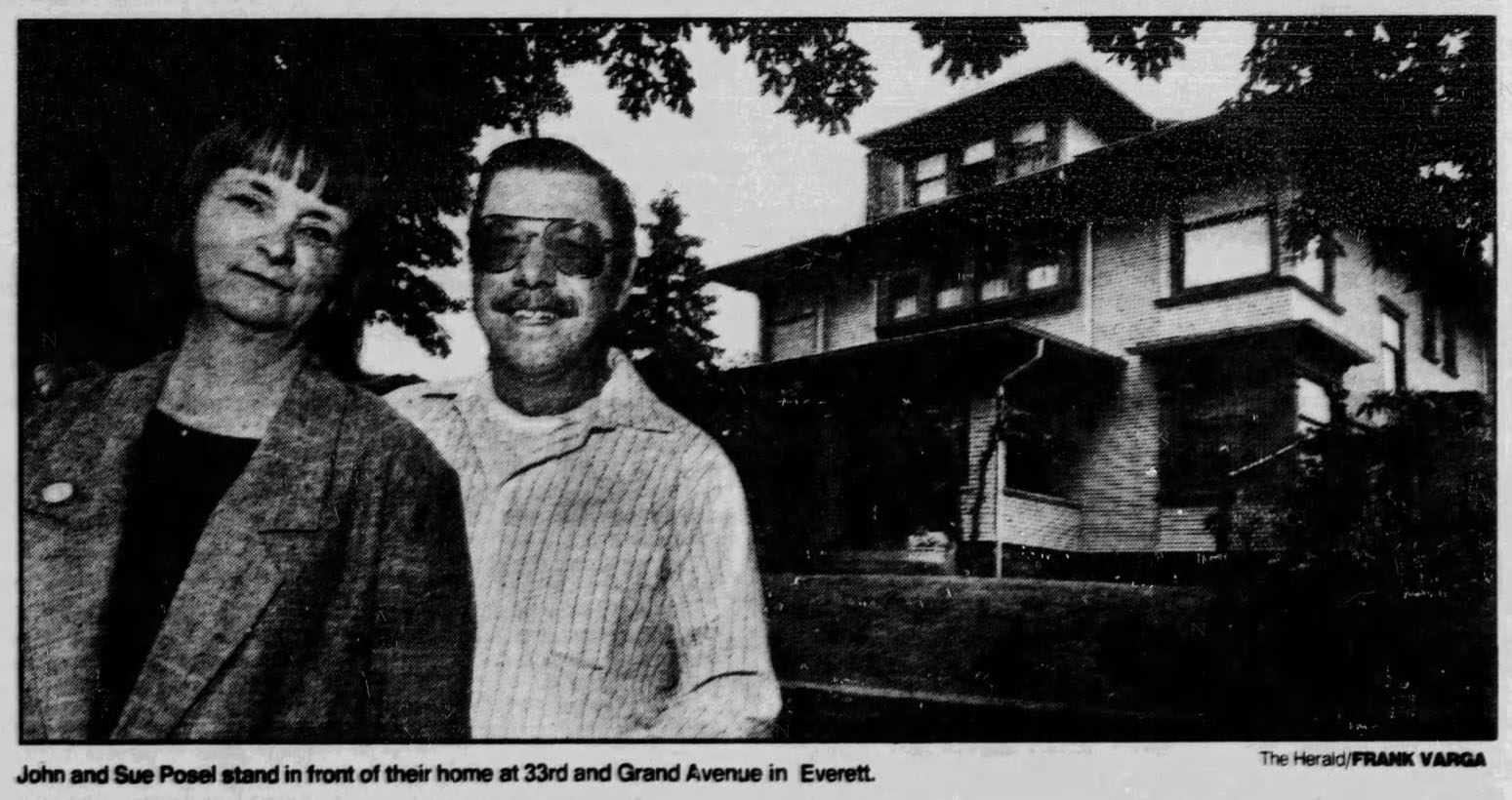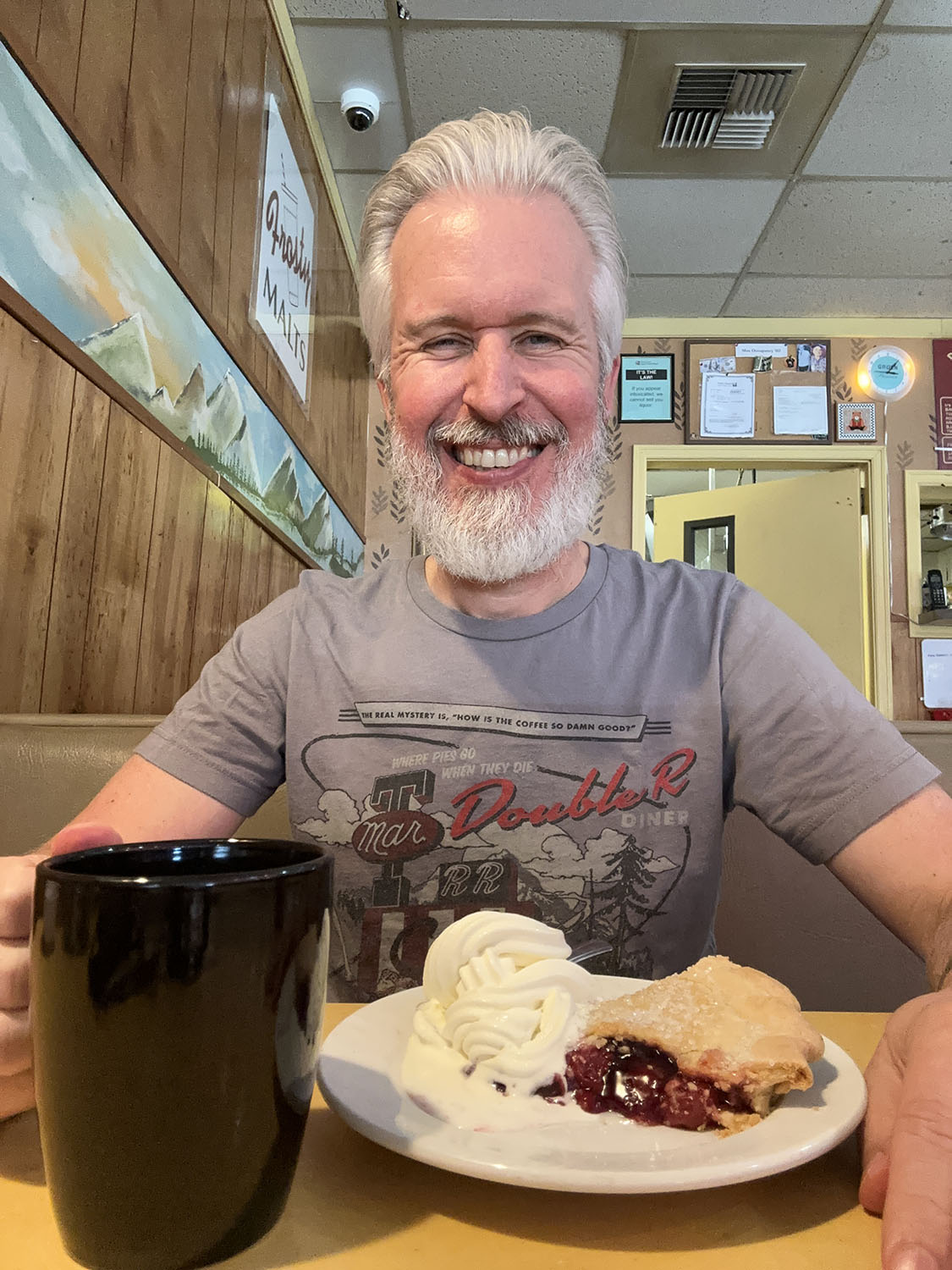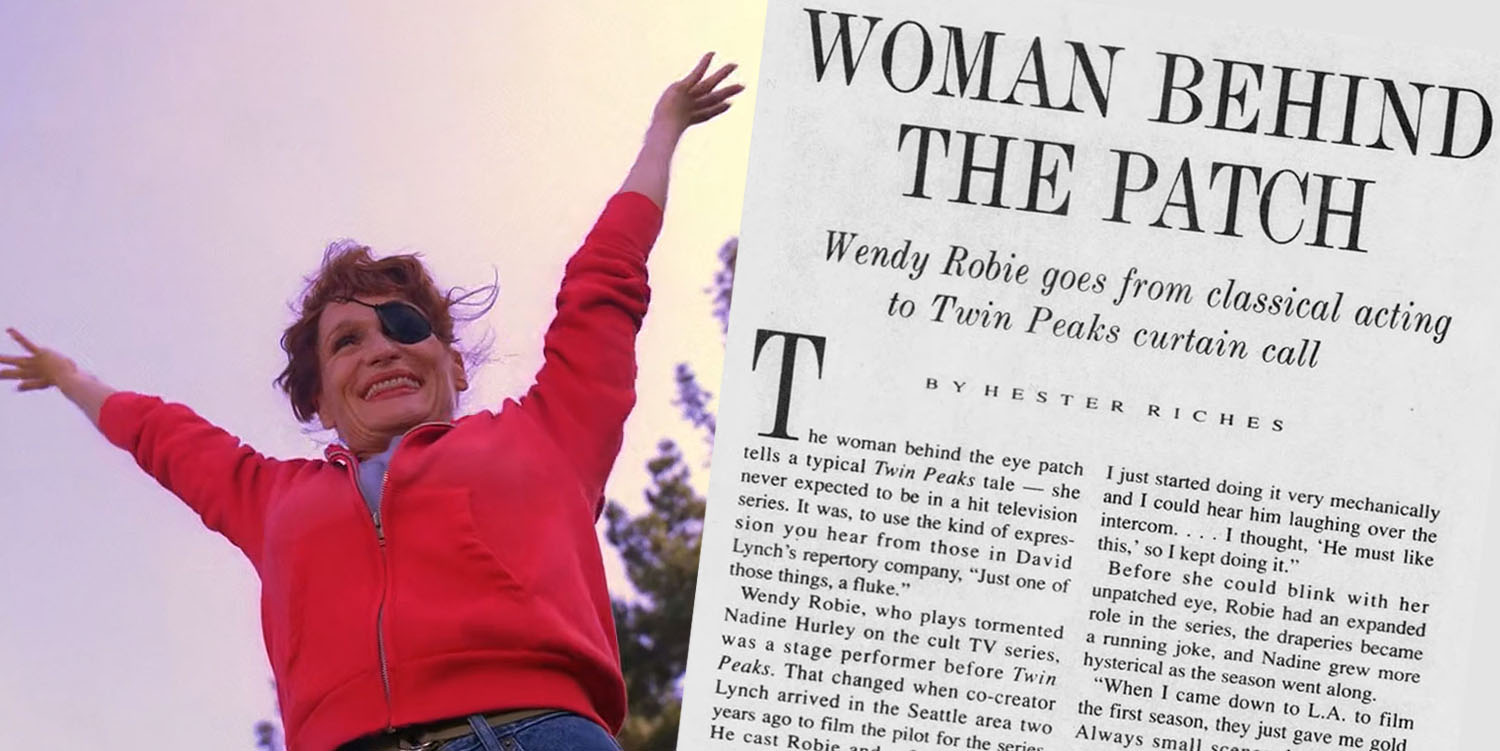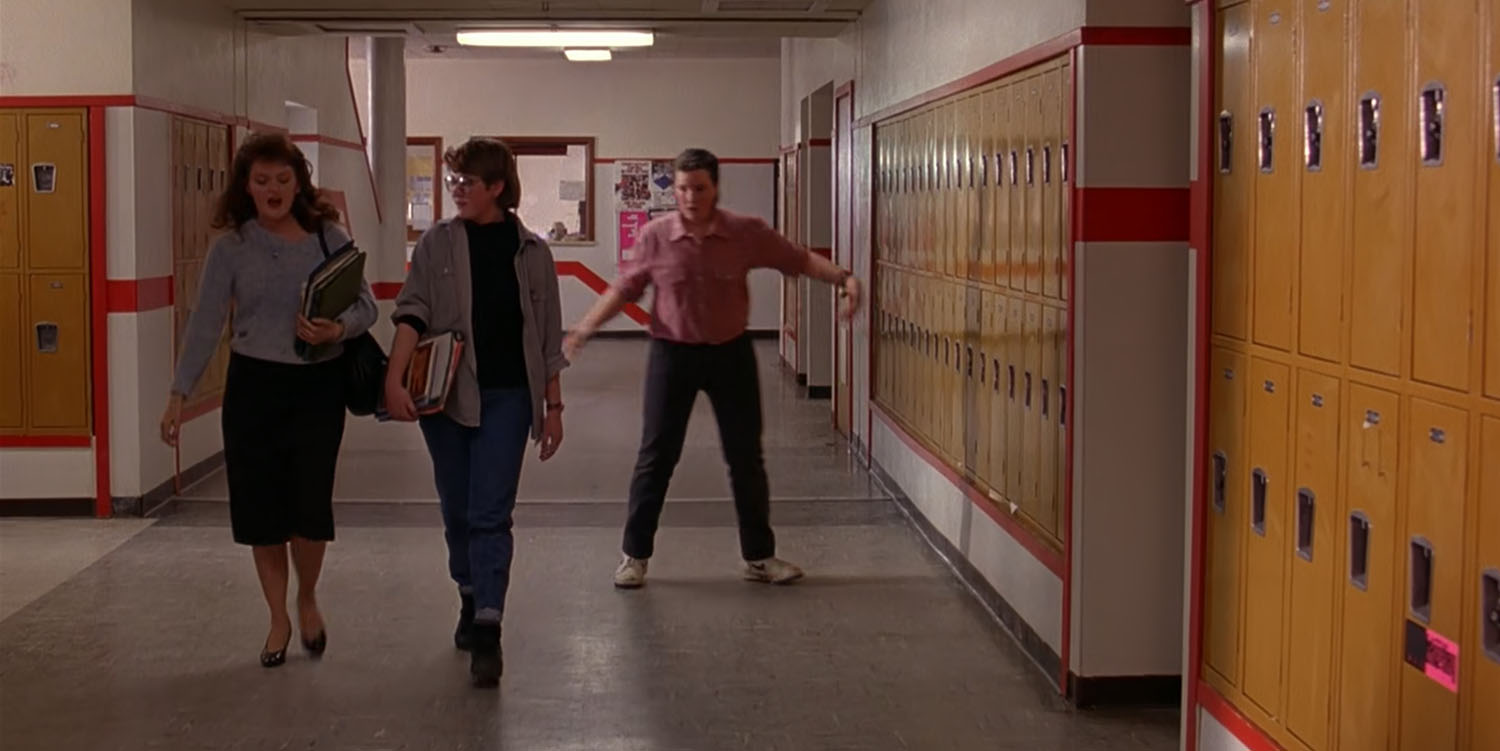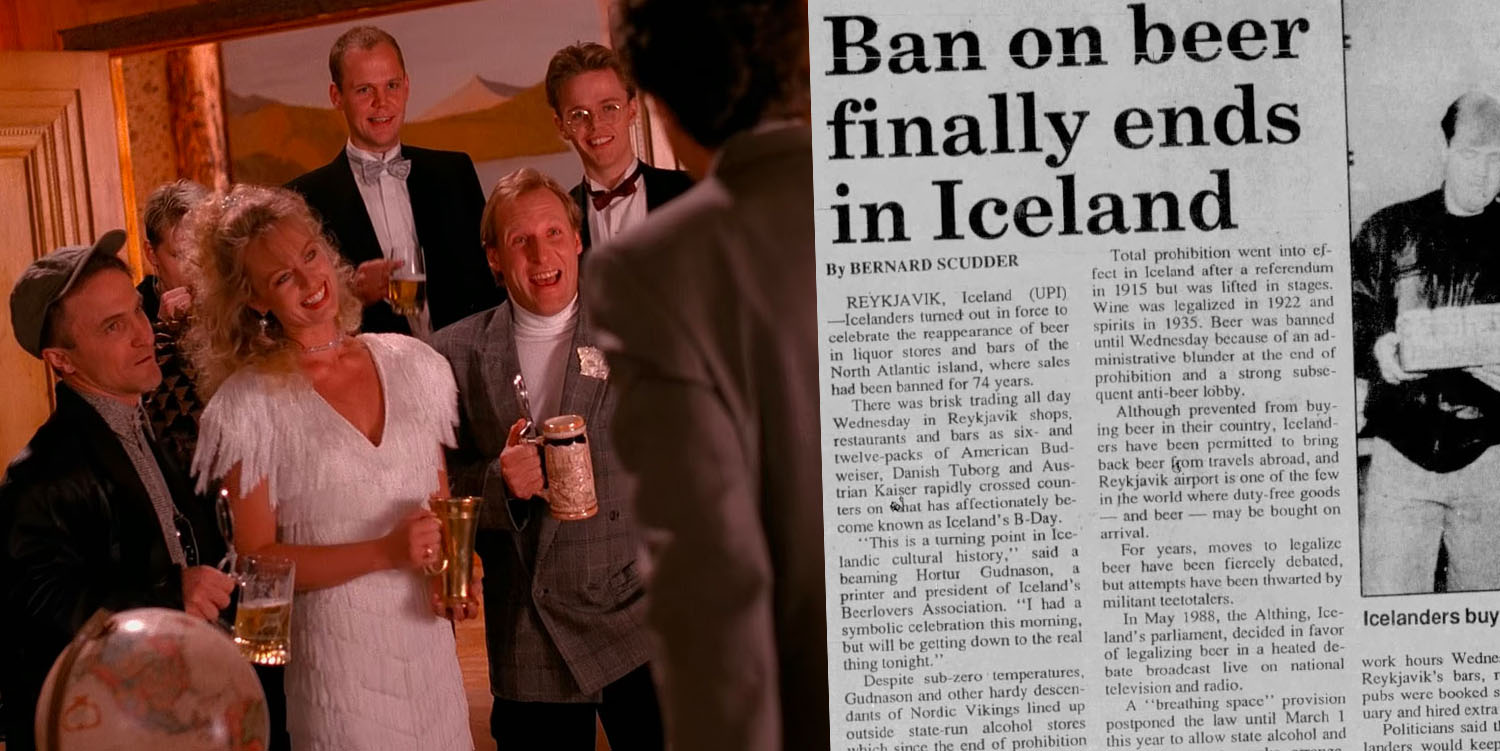Despite being a Twin Peaks fan for more than 30 years, I am continually finding new details about the show. This time, I am returning to the original production of “Northwest Passage,” the original name of David Lynch and Mark Frost’s pilot episode. The crew visited Everett, Washington on March 10, 1989 to shoot scenes at the Hayward House. Here’s a look back at the production as told by the homeowners at the time, John and Bertha May “Sue” Posel.
THE HAYWARD HOUSE AT 3316 GRAND AVENUE
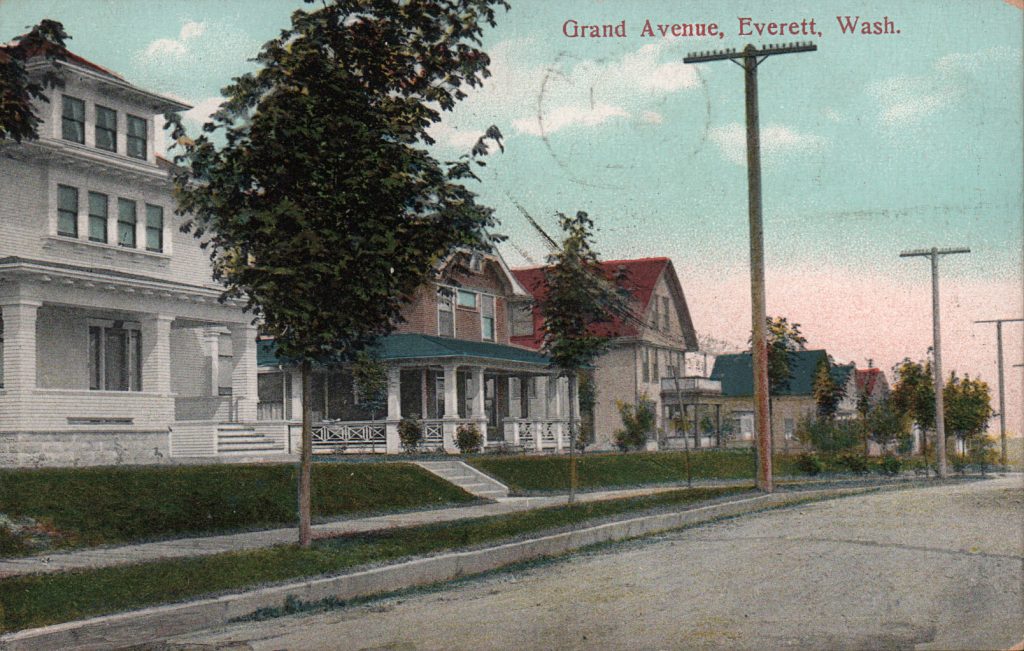
The Hayward House is located at 3316 Grand Avenue in Everett, Washington. Constructed in 1910, Harry W. Stuchell lived in this home until 1925. Originally, the house was painted white, not green as seen in Twin Peaks and Twin Peaks: Fire Walk With Me. The postcard image above shows the home (far left).
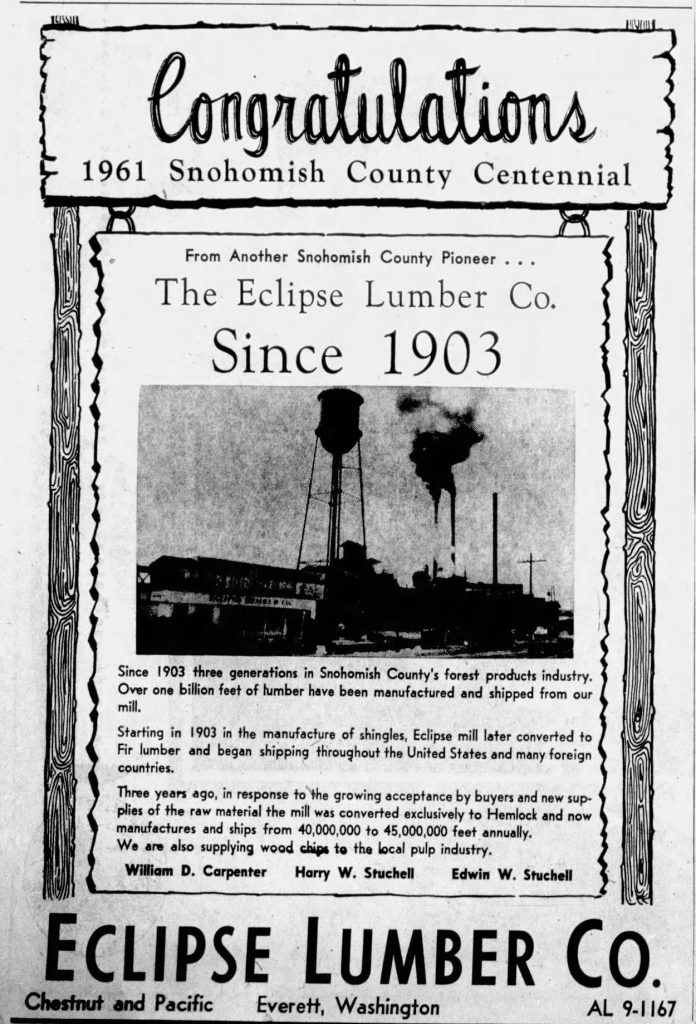
Born June 1, 1861 in Plymouth, Pennsylvania, Mr. Stuchell moved to Chehalis / Centralia, Washington in 1889, where he ran a mercantile store and started a lumber mill. He then moved to Everett in 1903 with his wife Mary and family.
In 1902, his business associates assumed ownership of the Gould mill which eventually became the Eclipse Mill Company in Everett. Harry passed on February 6, 1944 and the Eclipse shingle and lumber mill operated until May 7, 1962 when it was destroyed by a fire. The Stuchell family stayed in the log export business until 1973, when they sold the Eclipse Lumber Company.
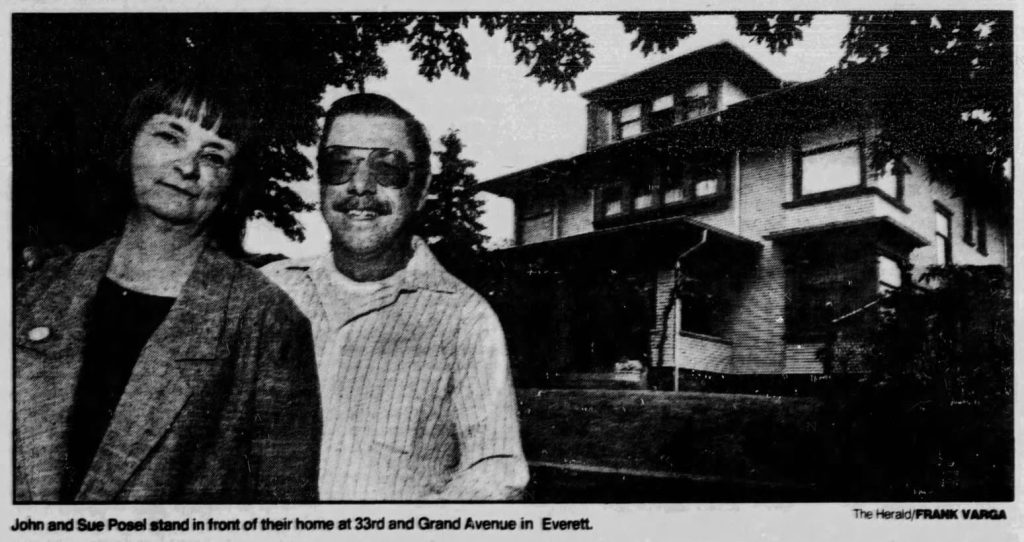
John and Bertha May “Sue” Posel moved into the Stuchell home in 1973. They lived in the house with their 10-year old son Dave when scenes from the pilot episode were shot both inside and out the home on March 10-11, 1989.
They were also present in September 1991 when Lynch and crew returned to Everett to shoot Twin Peaks: Fire Walk With Me. Only the exterior and front room was used at that time as other interior scenes were shot on a set in Southern California.
The Stuchells were reluctant at first to have their home featured in the pilot. According to a March 11, 1989 article in The Daily Herald, Mrs. Posel said “someone knocked on her door one day and made an offer.” She thought it was a joke or a scam and refused. After the location team (most likely Julie Duvic) returned a third time, the Posels accepted.
Mr. Posel even checked with the Everett Chamber of Commerce about the request for filming.
“When I knew everything was legitimate, I said OK and asked them what they would need,” he recalled in 1991.
The family was paid “a couple hundred dollars” for the use of their home and the Twin Peaks crew offered a complimentary stay at the former West Coast Everett Pacific Coast hotel, once located at 3105 Pine Street in Everett. That hotel originally opened on December 20, 1981 as the Everett Pacific Coast but is known today as Marriott’s Delta Hotels Seattle Everett.
WHY DID DAVID LYNCH SELECT THE HAYWARD HOUSE ON GRAND AVENUE?
The 10,000-square-foot house on Grand Avenue was an “American Box” style home, as described by John.
“That’s probably why it attracted Lynch’s interest,” he said in a 1991 interview with The Daily Herald. “Because it’s so big.”
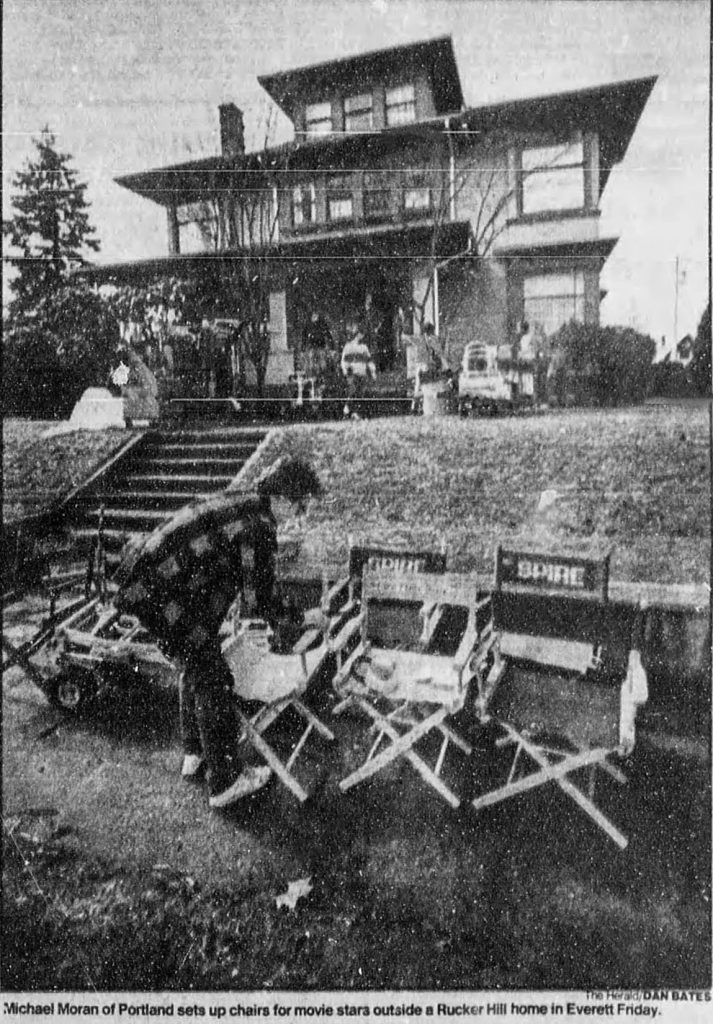
The film makers needed an elegant old home for the Hayward House, but the first revised draft for “Northwest Passage” from December 8, 1988 didn’t offer many details about the house.
EXT. THE HAYWARD HOUSE – NIGHT
Warm lights in the windows against the cold night.
EXT. HAYWARD HOUSE – NIGHT
Donna drops silently to the ground from the oak tree and creeps around the house, out of sight of the windows. She ducks alongside a hedge edging the yard and into an alley behind the house. Donna takes Harriet’s bike, leaning against the side of the garage, climbs on the bike and pedals down the deserted alley.
“This house was perfect for a certain family in the [“Twin Peaks” pilot],” explained Gretchen Armstrong, a scenic artist on the crew that started two days of work at the house on March 10. As an aside, Armstrong would later serve as chief scenic artist (as Gretchen Adele Armstrong) in David Lynch’s Wild At Heart.
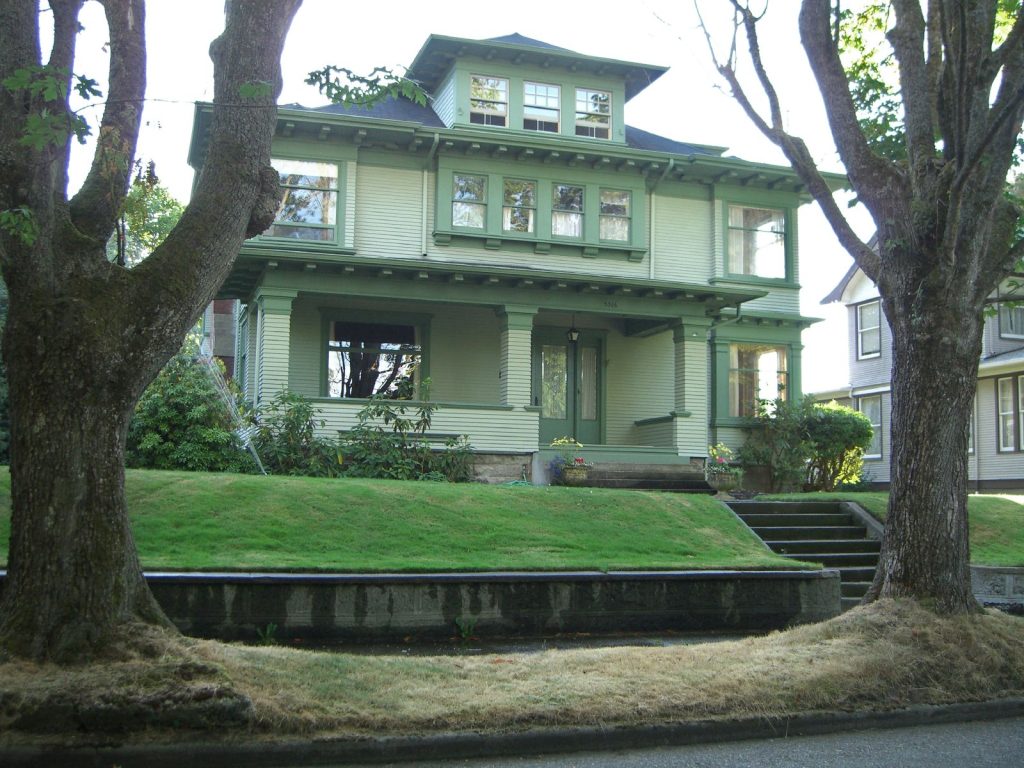
Sue thought the reason Lynch selected the house was because he saw what he liked in his mind.
“I think the director looked at it and liked it,” continued Sue. “He drove around, spotted it and said, ‘That’s the house I like.'”
She would tell a similar story about Lynch spotting the house in a 1991 interview.
“David Lynch drove around town looking for houses he wanted to use,” Posel said. “When he came on mine, he said, ‘That’s the one.'”
Neighbor Joyce O’Donnell thought the location was a natural fit due to the historic homes.They lived in the home to the right of the Hayward house at 3310 Grand Avenue.
“Where else can you find nice old houses on both sides of the street,” O’Donnell said in 1989. Sadly, Joyce passed on August 3, 2021.
PREPARING THE HAYWARD HOUSE FOR PRODUCTION
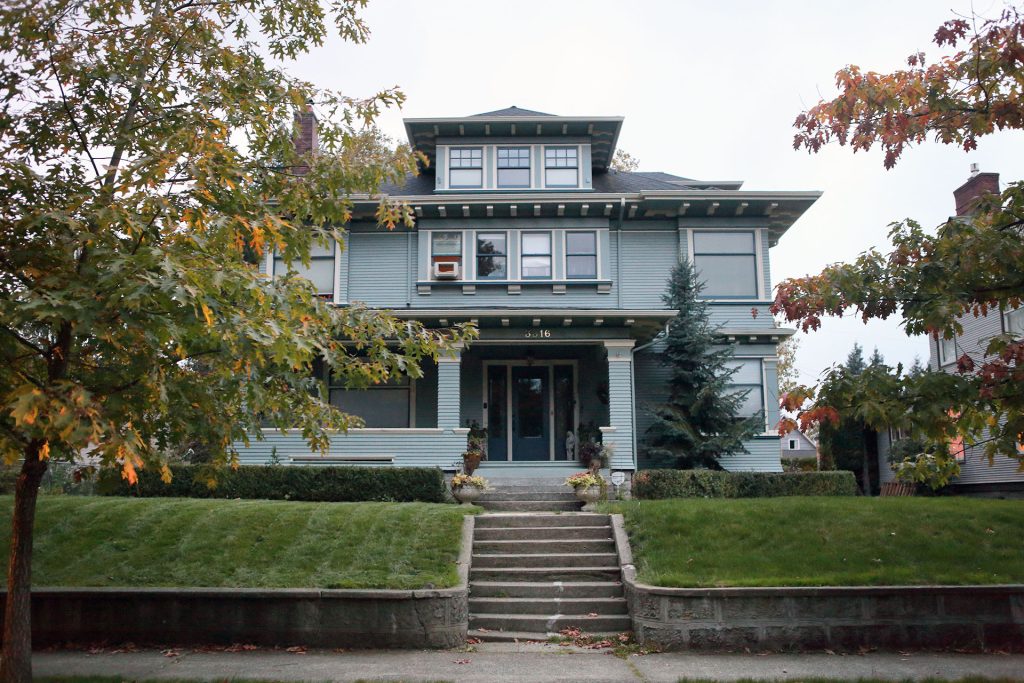
The production team rolled into Rucker Hill neighborhood around noon on Friday, March 10. According to the report, dozens of “actors, technicians and support staff scurried about unloading and installing equipment.” The front yard and porch had gear and carts with more equipment. In a photo by Dan Bates, you can see Michael Moran of Portland, Oregon setting up Hollywood-style director chairs for talent and David Lynch on the sidewalk near a retaining wall.
Cables ran from a large generator in the alley into a second story window, while other windows were covered with black material (this would help with controlling lighting or shooting possible night scenes during the day).
On nearby 33rd Street (the same street where the Palmer House is located), trailers were parked for dressing rooms, wardrobe and craft services.
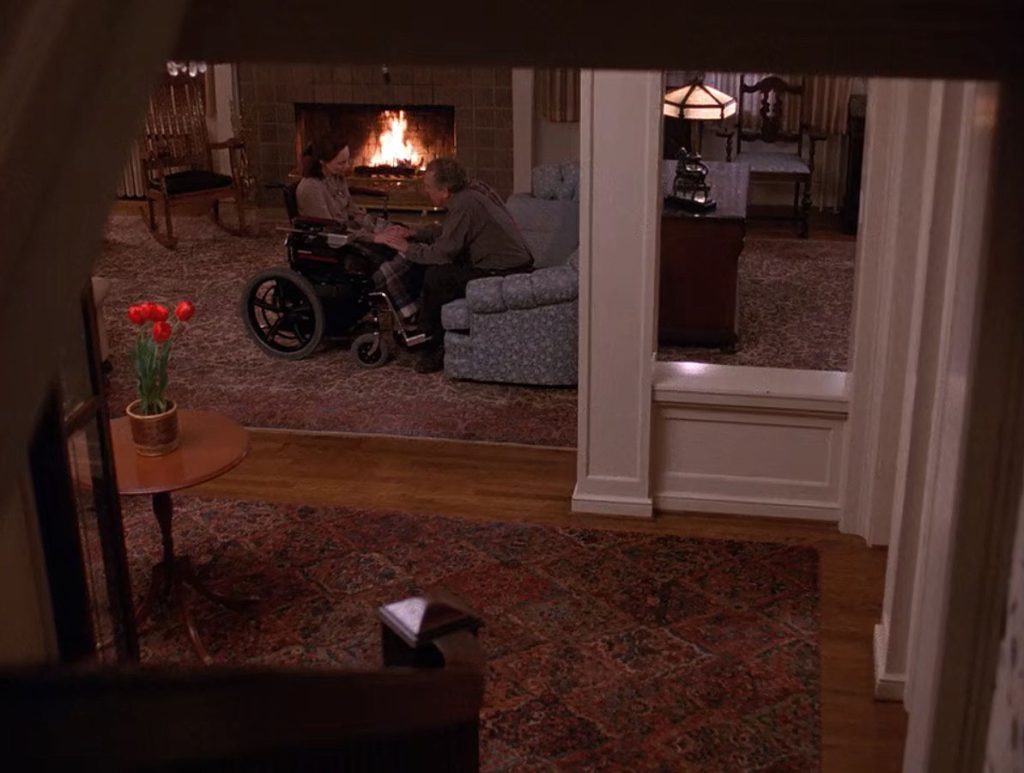
The historic home didn’t require major changes for production. Most of the Posel’s antique furniture was used in filming with only a handful of items added to “set the mood,” Mr. Posel remembered. Furniture was rearranged but crews “promised to put everything back where it belongs and send in cleaners” on Monday, March 13.
As soon as the production team arrived, Mrs. Posel felt better about agreeing to letting the crew use her home.
“They’re very professional,” she said. “I feel as though I can go off and leave my home with them and not worry about it.”
PRODUCTION AT THE HAYWARD HOUSE
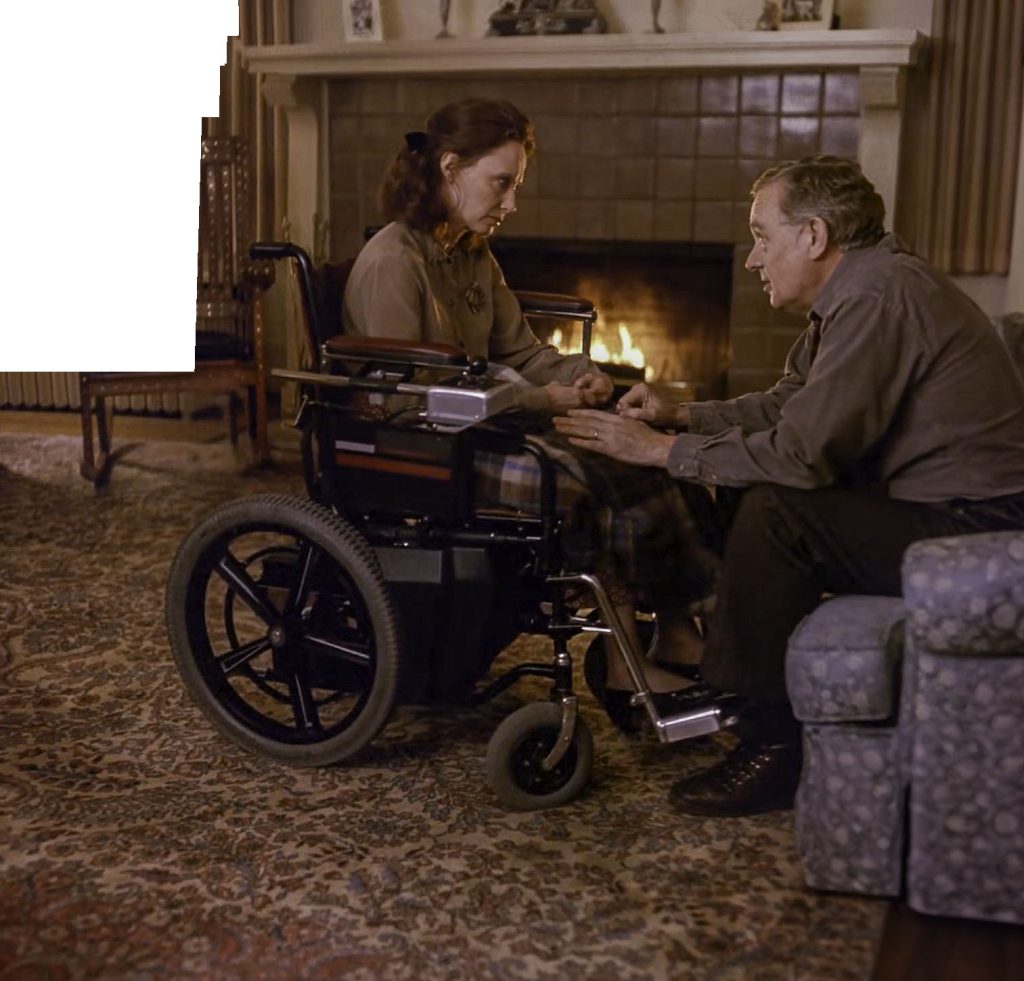
There were only a handful of scenes needed at this location, including an interior shot of Eileen and Will Hayward discussing Laura Palmer’s murder. I combined the tracking up shot to get this image of the couple by the warm fireplace. This scene closely follows the script, including a description of Mrs. Hayward – “a beautiful, pale women, early forties, confined to a wheel chair, a blanket covering her paralyzed legs.”
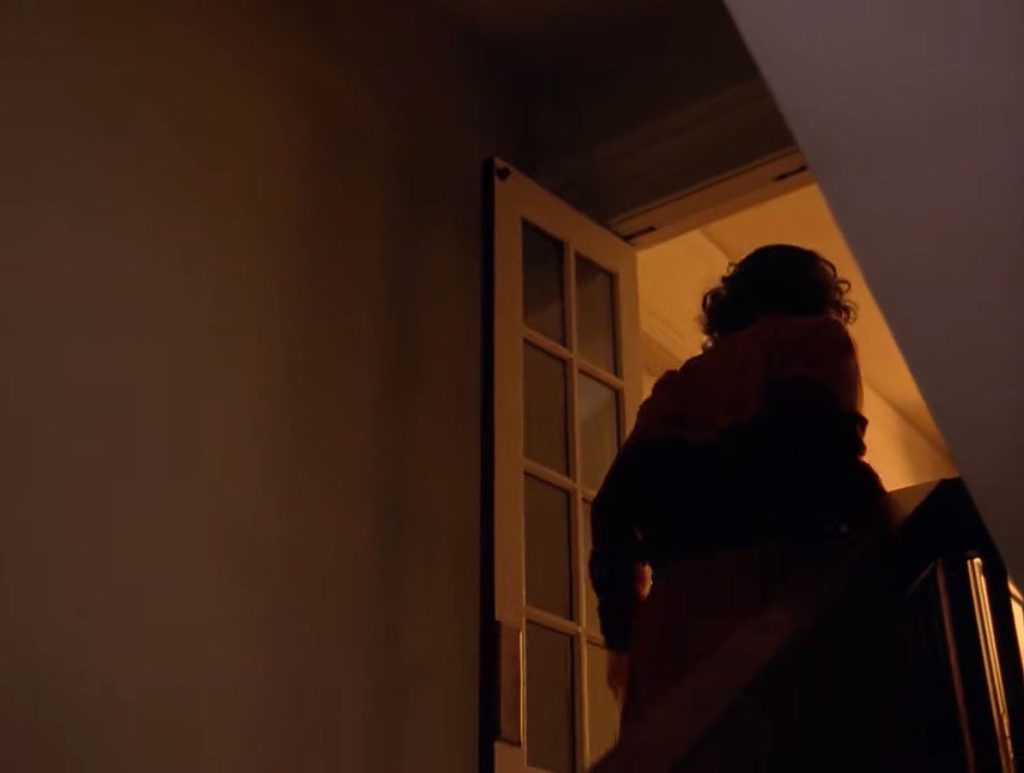
Also in the script was Donna Hayward eavesdropping on her parents, then proceeding up the stairs.
But something that isn’t seen is Donna walking down the hallway to her bedroom.
INT. HAYWARD HOUSE UPSTAIRS CORRIDOR – NIGHT
Donna creeps down the carpeted corridor and into her bedroom.
The March 11 article states that filming would be “done in an upstairs bedroom an hallway, and in the Victorian-style living room. One can assume that the hallway shot was captured but cut.
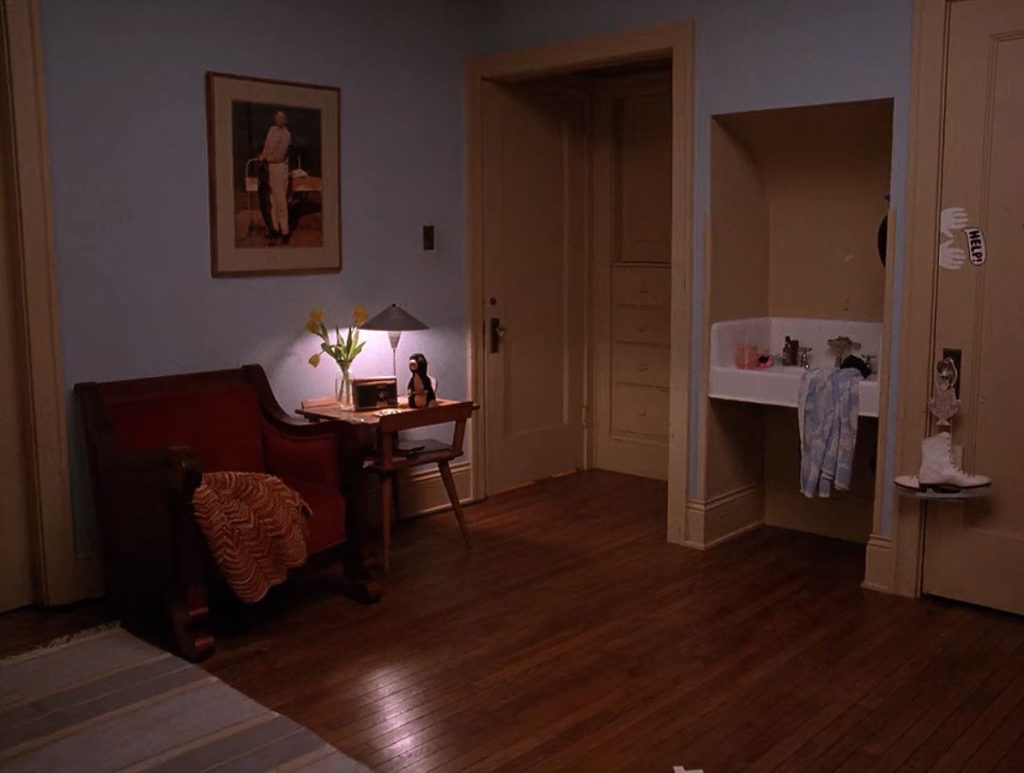
I was surprised to learn that the bedroom was Donna’s, not her sister Harriet’s room.
INT. DONNA’S BEDROOM NIGHT
As Donna enters, HARRIET, Donna’s thirteen year old whiz-kid sister, lies on the bed, chewing on a pencil, writing a poem. A radio is on softly in background.
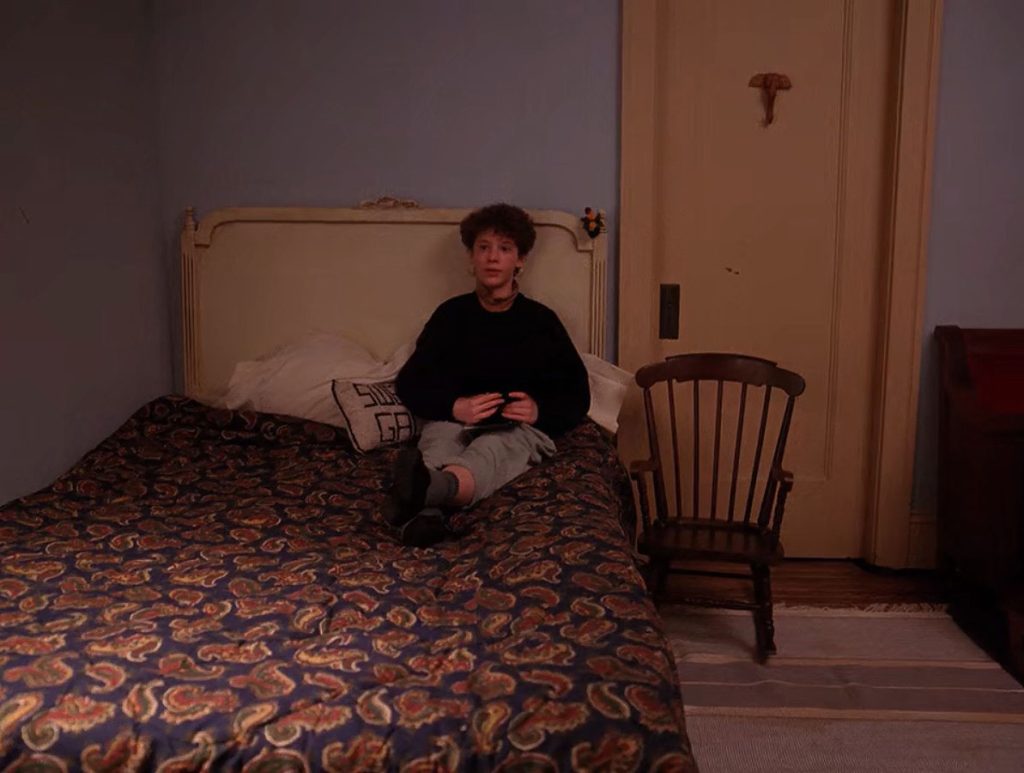
The script does contain Harriett’s question, “Which do you like better, ‘the blossom of the evening’ or the ‘full flower of the evening’? (I always preferred the “blossom of the evening”).
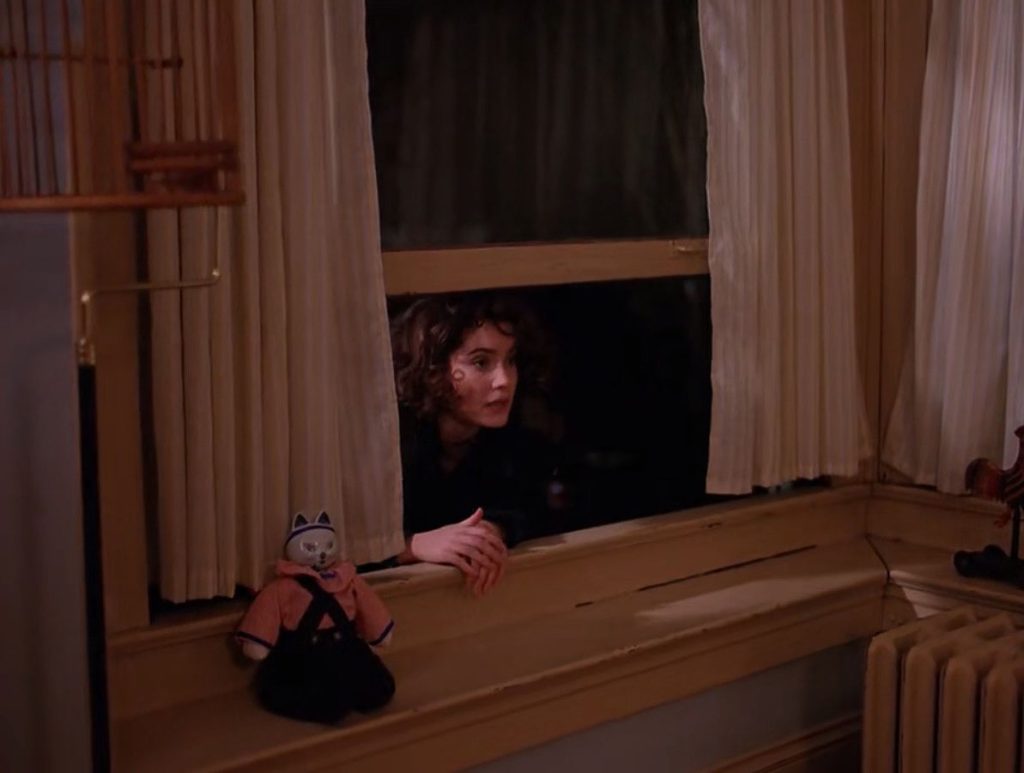
The broadcast version follows the script with Donna climbing “into branches of a large oak tree.”

The window she uses is in the upper left front of the home, and she literally climbed out onto the small roof above the front porch.
Also missing from this scene is Donna picking up Harriett’s bicycle (as previously highlighted).
There is another scene which I assume was shot of Donna riding the bike through town.
EXT. NEIGHBORHOOD STREET – NIGHT
Donna rides silently through the the Highway 21 service road.
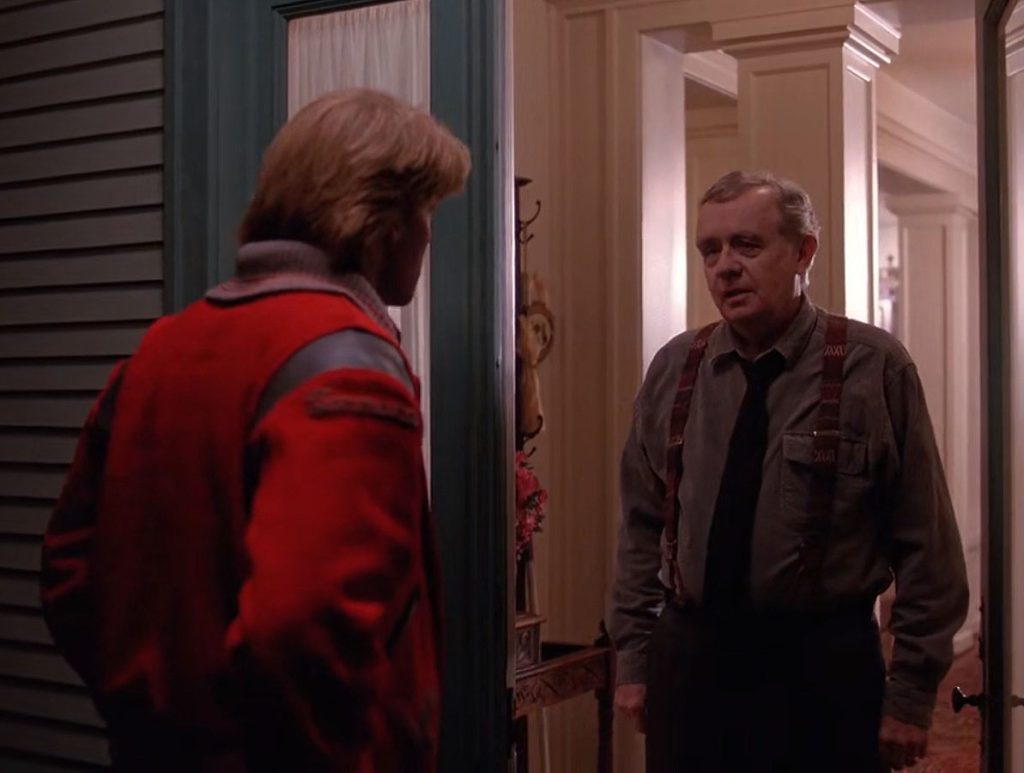
Mike Nelson and Bobby Briggs visit the Hayward House which leads Dr. Hayward to question Harriett in “Donna’s bedroom.” In other cut scene that I discussed in the stakeout with Cooper and Truman article, Dr. Hayward places a call to the law enforcement team from a hallway.
INT. HAYWARD HOUSE SECOND FLOOR CORRIDOR – NIGHT
INTERCUT:
Dr. Hayward on the phone. Harriet peeks out at him from the bedroom door.
Assuming the Donna sneaking down the hallway was shot, I believe this one was shot too.
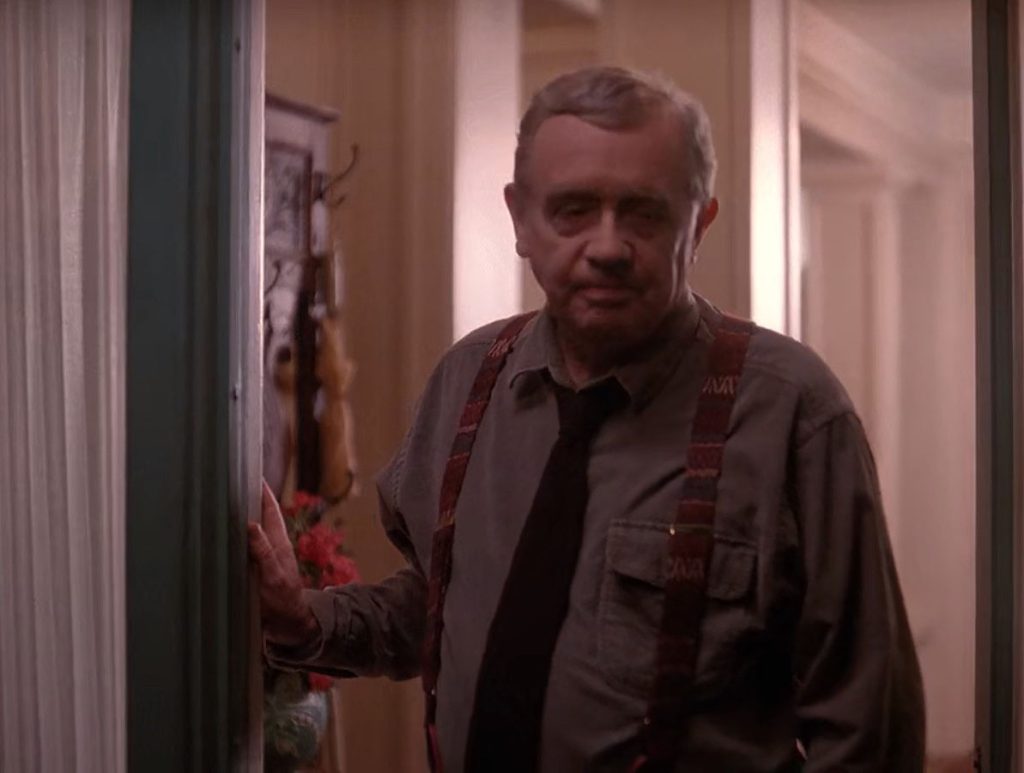
Dr. Hayward returns to the front door and informs Mike that Donna snuck out of the house. They leave and Dr. Hayward looks exasperated. The script calls for the sound of Mrs. Hayward’s electric wheelchair – “We hear the whine of Mrs. Hayward’s electric wheelchair approaching the front door.”
Warren Frost, the actor “who plays the owner of the house in the movie” told the Daily Herald in 1989 that for all the effort, “the film will contain only a couple of minutes worth of footage from the Rucker Hill home.”
He was correct until the crew returned in September 1991 during production of Lynch’s feature film.
LASTING LEGACY OF THE HAYWARD HOUSE
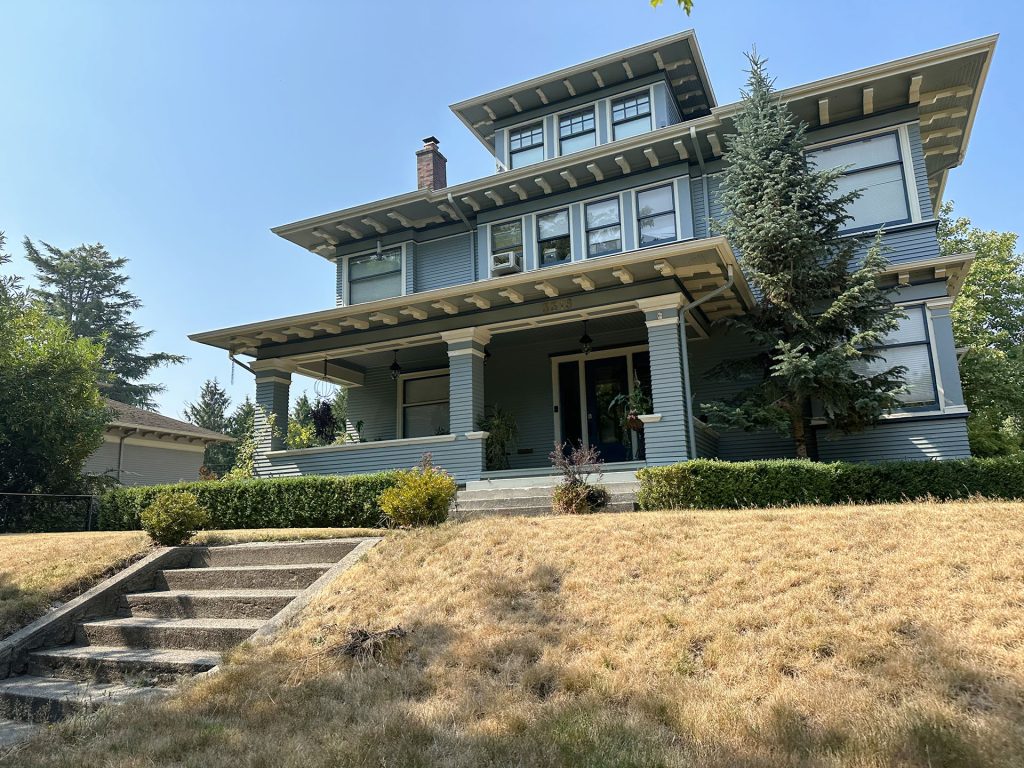
“I think it will be a real nice experience, something different to tell people about,” said Sue Posel about the production in 1989. Unfortunately, Sue passed in Arlington, Washington on November 22, 2023 at the age of 80.
According to property records, the Posels sold the home on January 9, 2004 to Steven and Karlene Bolton. They would live in the home until February 17, 2012. Brian Housley sold the home on May 22, 2012 to Carlo and Lynda Colombo.
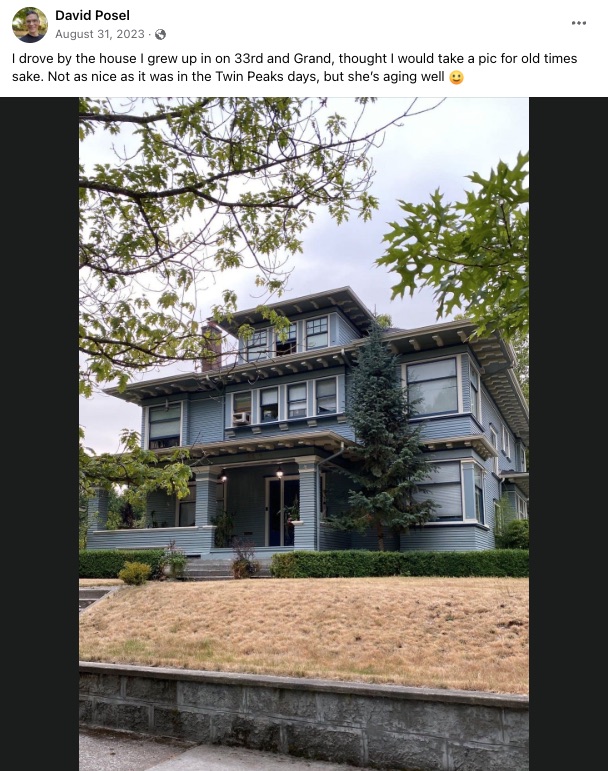
Sue and John’s son David drove by his childhood home on August 31, 2023 and posted this image. I missed seeing him by a few days.
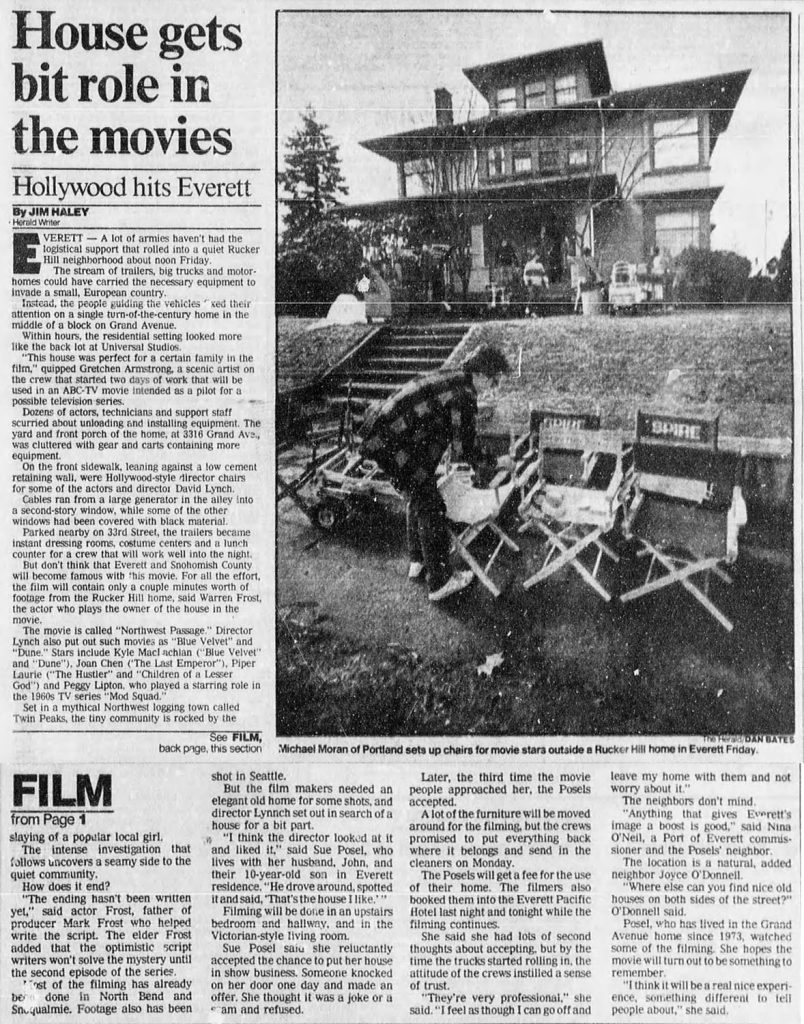
Thank you to Jim Haley from The Daily Herald for publishing the original story referenced in this article. There is some additional commentary not included in my article above.
Discover more from TWIN PEAKS BLOG
Subscribe to get the latest posts sent to your email.

